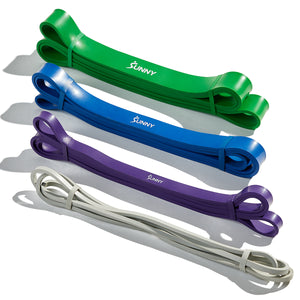You may have heard of the term “carb cycling” and thought of it as a diet, or maybe you want to learn more about what it is and how it might help your fitness and health journey. Perhaps you have even tried cycling your carbs but still can’t get a grasp on it. Maybe this is all new to you!
The good news is, carbs are not the enemy and never have been. We are going to dive into carb cycling with the top 3 questions I receive as a nutrition coach when it comes to the topic and go over the basics on how to get started if you think this could be a good fit for you.
1. What is carb cycling?
Carb cycling is a term used to vary the amount of carbs you eat throughout the week. It is believed that cycling your carbs and spreading them out differently throughout the week can help keep your metabolism running optimally. Because you are varying the amount of carbs you eat daily, your body is less likely to adapt to the carb intake and potentially experience a fat loss plateau. This nutrition strategy is thought to give your carbohydrate metabolism a new signal each day which can be used to strategize better performance with your workouts. This is all in hopes to trigger your body to use stored fat rather than carbohydrates for energy on your lower carb days. Here is an example of how this might work:
Days 1-3: low carb intake
Days 4-5: high carb intake
Days 6-7: moderate carb intake
This is just one example; you could also change your carbs every day of the week if that works better for you. You are basically balancing out days of lower, higher, and more moderate calories, but the calories are taken from or given to your carb intake. The most common reason people enjoy this way of eating throughout the week is it helps them schedule their week around their plans with friends and families without sacrificing their favorite foods. However, they are still able to stay within the calorie deficit or goal intake range overall.
There is no weekly rule about high to low carb days that comes with carb cycling. It is simply figuring out what works for you as long as at the end of the week, your carb intake equates to the amount you are allotted for your specific deficit, maintenance, or even an overall increase in caloric intake. It is best to first figure out how many calories you are trying to consume weekly and then figure out how many calories will be consumed from proteins, fats, and carbs. From there, you can start to split up your carbs throughout the week in a way that makes the most sense for you. Your protein and fat intake goals should not change day to day, only your carbs.
This is thought of as a way to aid your body in utilizing the “carb load” for energy once it is in your tank and then tapping into fat stores when your glucose levels become more depleted on your lower carb days. If you have never counted macronutrients or calories in the past, I highly encourage hiring a nutrition coach or dietician before starting a carb cycling plan. This can help the process feel smoother as they will guide you through how to split your calories up each day, along with finding what type of plan is best for you.
Everyone has their own schedule, and carb cycling can help a calorie deficit feel less restrictive, as the “refeed” days (the high carb days) can help you feel more satiated when you need it the most.
2. Is carb cycling sustainable? Will it ruin my relationship with food?
I get this question from time to time, and although carb cycling can be deemed as a “diet,” it really is a more flexible approach to your calorie tracking. Often it can be a more effective approach when it comes to being consistent with calorie and carb intake goals. What’s more, it allows you to have the flexibility to go out and enjoy your favorite foods and meals with friends while still meeting your goals.
Now, a potential sticking point with carb cycling is that individuals find themselves binge eating on higher carb days. If you start carb cycling and notice that on your higher carb days you are going far over the amount of carbs you have allotted for the day, it is important to address this with a dietician. Perhaps, your overall caloric intake is too low and it feels restrictive even on high carb days, or maybe you have a past of restrict then binge eating habits. If you have struggled from dieting to binging, I would encourage to stay away from carb cycling and focus on consistent carbs daily. This will allow you to reach the same number of macronutrients and calories at the end of the week as you would if you were to cycle. Both strategies can help achieve your goals, so pick what is safest for your mental and physical health.
3. What are the true benefits of carb cycling?
Carb cycling really came into play in the early body building days where athletes would deplete their body of carbohydrates and then refeed for a fuller “pump.” Since then, the carb cycling technique has been adopted by the average fitness guru and has been used to enjoy that balance with food.
For example, you may have had a low carb day on a Thursday. However, come Friday you have planned for a higher daily carb intake so you can go out with your friends and not be left out of pizza night (my favorite). This could help you feel as if you never diet again in your life when you allow yourself these foods on your higher carb days. At the end of the week, you are still eating the same amount of carbs and calories.
Another great use for carb cycling would be to plan for your higher carb days to align with your workout days. Having more glucose on board for a workout has been shown to improve performance, therefore improving your results. On your lower carb days, you can focus on recovery as your body uses fat as fuel to tackle your normal daily tasks.
The biggest benefit of carb cycling will come from long-term consistency. If you can commit to this for a year and it doesn’t feel restrictive, you have found a plan that works for you.
A realistic approach to nutrition
Whether you choose to try this tool out or not, remember it’s just that – a tool. This is not a strict keto or carnivore diet, and your overall carb intake shouldn’t change drastically. It is just a way to strategize how you eat your carbs throughout the week to benefit your lifestyle. This can allow for some wiggle room and balance but be sure that the majority of your carb intake comes from fruits, veggies, and whole grains.
If you notice carb cycling is creating an unhealthy relationship with food, get in contact with a dietician immediately. Before you get started, talk to a nutrition coach to be sure you are approaching this with respect to your specific goals. Some people will have more low carb days, some will have more high carb days, so it is a good idea to trial it out before you commit. It’s always okay to make those tweaks as needed.
Being consistent with carbs day to day or leveraging them throughout the week – there is no right or wrong way, there is just your way. That is the beautiful thing about a health and fitness journey. It’s yours. Everyone is so unique with their needs and lifestyle, and I truly believe there is so much value in finding something that works just for you. Try things out, challenge yourself, but most importantly find your own path.
References
WebMD. (n.d.). Carb Cycling: What is it, and how does it work?. WebMD. https://www.webmd.com/diet/carb-cycling-overview. Last accessed 18 November 2024.
Cleveland Clinic. (2024, July 1). What is Carb Cycling? https://health.clevelandclinic.org/what-to-eat-if-youre-carb-cycling. Last accessed 18 November 2024.

























Add Your Name & Email
Please enter your name and email to continue.We won’t display your email publicly.